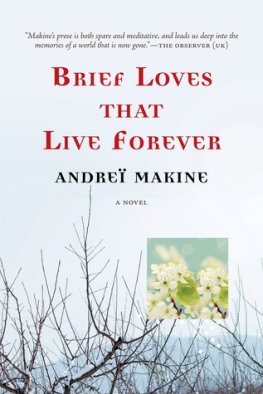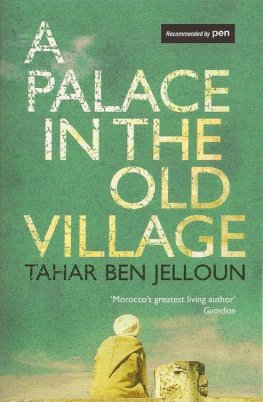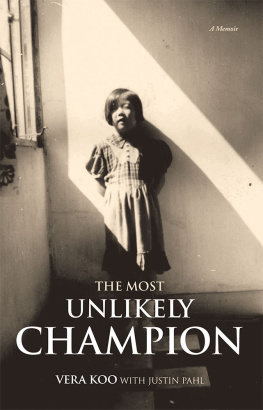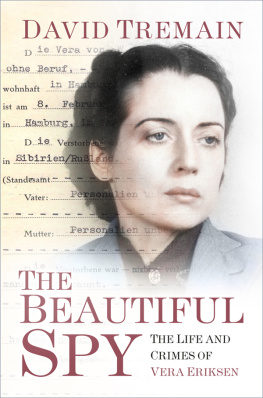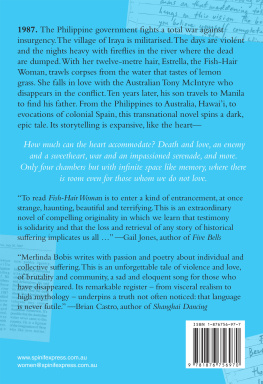
Andre Makine
The Woman Who Waited
Copyright 2004, 2011 by Editions du Seuil

Translation copyright 2006, 2011 by Geoffrey Strachan
ANDRE MAKINE WAS BORN AND BROUGHT UP in Russia, but The Woman Who Waited, like his other novels, was written in French. The book is set in Russia, and the author uses some Russian words in the French text, which I have kept in this English translation. These include nyet (no), izba (a traditional wooden house built of logs), dacha (a country house or cottage, typically used as a second or holiday home), and sarafan (a traditional sleeveless tunic dress).
There are also a number of references to well-known Russian place names, including the Nevsky Prospekt, the street in St. Petersburg (Leningrad under the Soviet Union), and to institutions from the Communist era in Russia. A kolkhoz was a collective farm, a kolkhoznik a member of the farm collective. An apparatchik was a member of the party administration, or apparat. References from French cultural life include those to Jean-Luc Godard, the influential NewWave film director of the 1960s, the events of May 1968, when student protests in France led to a crisis that shook the government, and Colonel Chabert, the eponymous hero of Balzacs 1834 novel, who returns from the war in which he was reported killed to find his wife has remarried and refuses to recognize him.
G.S.
SHE IS A WOMAN SO intensely destined for happiness (if only purely physical happiness, mere bodily well-being), and yet she has chosen, almost casually, it seems, solitude, loyalty to an absent one, a refusal to love.
This is the sentence I wrote down at that crucial moment when we believe we have sized up another person (this woman, Vera). Up to that point, all is curiosity, guesswork, a hankering after confessions. Hunger for the other person, the lure of her hidden depths. But once their secret has been decoded, along come these words, often pretentious and dogmatic, dissecting, pinpointing, categorizing. It all becomes comprehensible, reassuring. Now the routine of a relationship, or of indifference, can take over. The other ones mystery has been tamed. Her body reduced to a flesh-and-blood mechanism, desirable or not. Her heart to a set of predictable responses.
At this stage, in fact, a kind of murder occurs, for we kill this being of infinite and inexhaustible potential we have encountered. We would rather deal with a verbal construct than a living person
It must have been during those September days, in a village among forests stretching all the way to the White Sea, that I noted down observations of this type: a being of inexhaustible potential, murder, a woman stripped naked by words. At the time (I was twenty-six), such conclusions struck me as wonderfully perceptive. I took great pride in having gained insight into the secret life of a woman old enough to be my mother, in having summed up her destiny in a few well-turned phrases. I thought about her smile, the wave she greeted me with when she caught sight of me in the distance on the shore of the lake, the love she could have given so many men but gave no one. A woman so intensely destined for happiness Yes, I was pretty pleased with my analysis. I even recalled a nineteenth-century critic referring to a dialectic of the soul to describe the art with which writers probe the contradictions of the human psyche: A woman destined for happiness, but
That September evening I closed my notebook, glanced at the handful of cold, mottled cranberries Vera had deposited on my table in my absence. Outside the window, above the dark treetops of the forest, the sky still had a milky pallor suggestive of the somnolent presence, a few hours walk away of the White Sea, where winter already loomed. Veras house was located at the start of a path that led to the coast by way of thickets and hills. Reflecting on this womans isolation, her tranquillity, her body (very physically, I imagined a tapered sheath of soft warmth surrounding that female body beneath the covers on a clear night of hoarfrost), I suddenly grasped that no dialectic of the soul was capable of telling the secret of this life. A life all too plain and woefully simple compared to these intellectual analyses of mine.
The life of a woman waiting for the one she loved. No other mystery.
The only puzzling but rather trivial element was the mistake I made: following our first encounter at the end of August, which lasted only a few seconds, I had encountered Vera again at the beginning of September. And I had failed to recognize her. I was convinced these were two different women.
Yet both of them struck me as so intensely destined for happiness

Later, I would get to know the ups and downs of the pathways, the trees vivid attire, new at every twist in the road, the fleeting curves of the lake, whose shoreline I was soon able to follow with my eyes closed. But on that end-of-summer day, I was only beginning to know the area, taking random walks, happily if uneasily, aware that I might end up discovering an abandoned village within this larch forest, or crossing some half-rotten wooden footbridge like a tightrope walker. In fact, it was at the entrance to an apparently uninhabited village that I saw her.
At first I thought I had surprised a couple making love. Amid the undergrowth covering the shores of the lake, I glimpsed the intense white gleam of a thigh, the curve of a torso straining with effort, I heard breathless panting. The evening was still light, but the sun was low and its raw red streaked the scene with shadow and fire, setting the willow leaves ablaze. At the heart of all this turmoil, a womans face was suddenly visible, almost grazing the clay soil with her chin, then all at once catapulted backward, amid a wild surge of hair tossed aside The air was hot, sticky. The last heat of the season, an Indian summer, borne there these past few days by the south wind.
I was about to continue on my way when suddenly the branches shook and the woman appeared, inclined her head in a vague greeting, and rapidly straightened up her dress, which had ridden up above her knees. I greeted her awkwardly in turn, unable to form a clear view of her face, on which the glow from the setting sun alternated with stripes of shadow. At her feet, forming a heap like the body of a drowned man, lay the coils of a large fishing net she had just hauled in.
For several seconds we remained rooted to the spot, bound by an ambiguous complicity, like that of a hurried sexual encounter in a risky location or a criminal act. I stared at her bare feet, reddened by the clay, and at the twitching bulk of the net: the greenish bodies of several pike were thrashing about heavily, and at the top, tangled among the floaters, extended the long, almost black curve of what I at first took to be a snake (probably an eel or a young catfish). This mass of cords and fish was slowly draining, water mingled with russet slime flowing toward the lake like a fine trickle of blood. The atmosphere was heavy, as before a storm. The still air imprisoned us in fixed postures, the paralysis of a nightmare. And there was a shared perception, tacit and instinctive, that between this man and this woman, at this red and violent nightfall, anything could happen. Absolutely anything. And there was nothing and no one to prevent it. Their bodies could lie down beside the tangle of the net, melt into one another, take their pleasure, even as the lives trapped in the fishnet breathed their last
Next page

